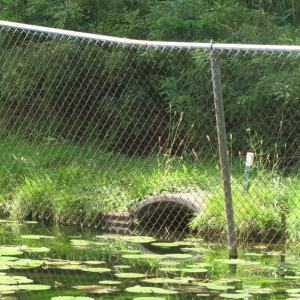The Stream, November 25, 2020: A Newly Approved Project In Australia Could Threaten Groundwater
GLOBAL DAILY WATER NEWS
- Australia approves a project that will drill over 800 wells in a forest in New South Wales.
- A Canadian oil pipeline is approved for replacement in the United States.
- A new government program in Kenya aims to increase access to drinking water and restore biodiversity.
- Subglacial lakes in Antarctica could provide a glimpse into how ocean life flourishes, a new study finds.
Chicago puts forth a plan to provide the nearby city of Joliet with water from Lake Michigan.
“This measure represents the latest effort by this administration to build partnerships within the state of Illinois between cities and the suburbs in their surrounding region to further advance our shared goals for all residents to have access to a clean, safe and healthy water supply.” – Chicago mayoral spokeswoman Jordan Troy. Chicago Mayor Lori Lightfoot released a plan to try and provide the city of Joliet with Chicago’s water supply from Lake Michigan by 2030. The Chicago Tribune reports that Lightfoot’s proposal would make Joliet responsible for building the pipes and other infrastructure to deliver water from Chicago’s Southwest Pumping Station out to the city. Joliet residents currently get their water from an underground aquifer, although that source is running low.
IN RECENT WATER NEWS
As Global Poverty Rises, USAID Plans for Covid-Altered World – Ensuring that water, sanitation, and hygiene are threaded throughout the agency’s programs is key, observers say.
HotSpots H2O: Months of Flooding and Violence Force South Sudanese from Their Homes – Nearly a half million people have been displaced due to abnormally heavy rainfall and flooding in South Sudan this year.
Enbridge’s Line 3 Moves Forward With Replacement Plan in Minnesota
After years of delay, Enbridge Inc. in Canada announced it received federal permits, including a contested water quality permit, for its Line 3 crude pipeline replacement project from the U.S. Army Corps of Engineers. The pipeline replacement would allow the oil company to roughly double its capacity to 760,000 barrels per day, Reuters reports. Enbridge has said they hope to acquire the final state permits and authorizations in Minnesota, where the pipeline runs through, soon to begin construction by the end of the year.
TODAY’S TOP WATER STORIES, TOLD IN NUMBERS
850 WELLS
Australia’s government has given environmental approval to a multi-billion-dollar project that would drill up to 850 wells in grazing land and forest in northern New South Wales, The Guardian reports. Critics of the project have said it will threaten groundwater and exacerbate the climate crisis. Environment minister Sussan Ley said she believes the biodiversity of the Pilliga forest would be protected under the conditions of the project, although Australia’s environmental laws do not require the minister to take climate-related impacts into account when approving such projects.
1500 PEOPLE
A government sponsored program in Kenya intends to increase access to drinking water and boost biodiversity by protecting and rehabilitating freshwater springs across the country, the Thomson Reuters Foundation reports. The program, which has provided drinking water for up to 1500 people so far, involves erecting walls and fencing to prevent people from contaminating the springs and building supply systems to help villagers access the resource more easily. Additionally, the program encourages villagers to plant indigenous trees, whose roots help rainwater sink into the soil and refill aquifers.
ON THE RADAR
Subglacial lakes in Antarctica and streams emerging from under the Greenland Ice Sheet contain traces of several elements that might affect the way ocean life grows and flourishes, a new study in Proceedings of the National Academy of Sciences found. A team of scientists from Ohio State University drilled into the ice sheet in West Antarctica to sample a subglacial lake to find traces of iron and other elements that were significantly higher in rivers, suggesting that runoff from the lakes and melting ice sheets could play an important role in how ocean life grows. The runoff includes important nutrients for phytoplankton, which have been known to counteract global warming by pulling carbon dioxide out of the atmosphere. The researchers found that the Southern Ocean does not have enough iron to feed large phytoplankton blooms but there is a possibility that runoff from subglacial lakes contributes significant amounts of the element to the Southern Ocean.
Jane is a Communications Associate for Circle of Blue. She writes The Stream and has covered domestic and international water issues for Circle of Blue. She is a recent graduate of Grand Valley State University, where she studied Multimedia Journalism and Women, Gender and Sexuality Studies. During her time at Grand Valley, she was the host of the Community Service Learning Center podcast Be the Change. Currently based in Grand Rapids, Michigan, Jane enjoys listening to music, reading and spending time outdoors.







Leave a Reply
Want to join the discussion?Feel free to contribute!